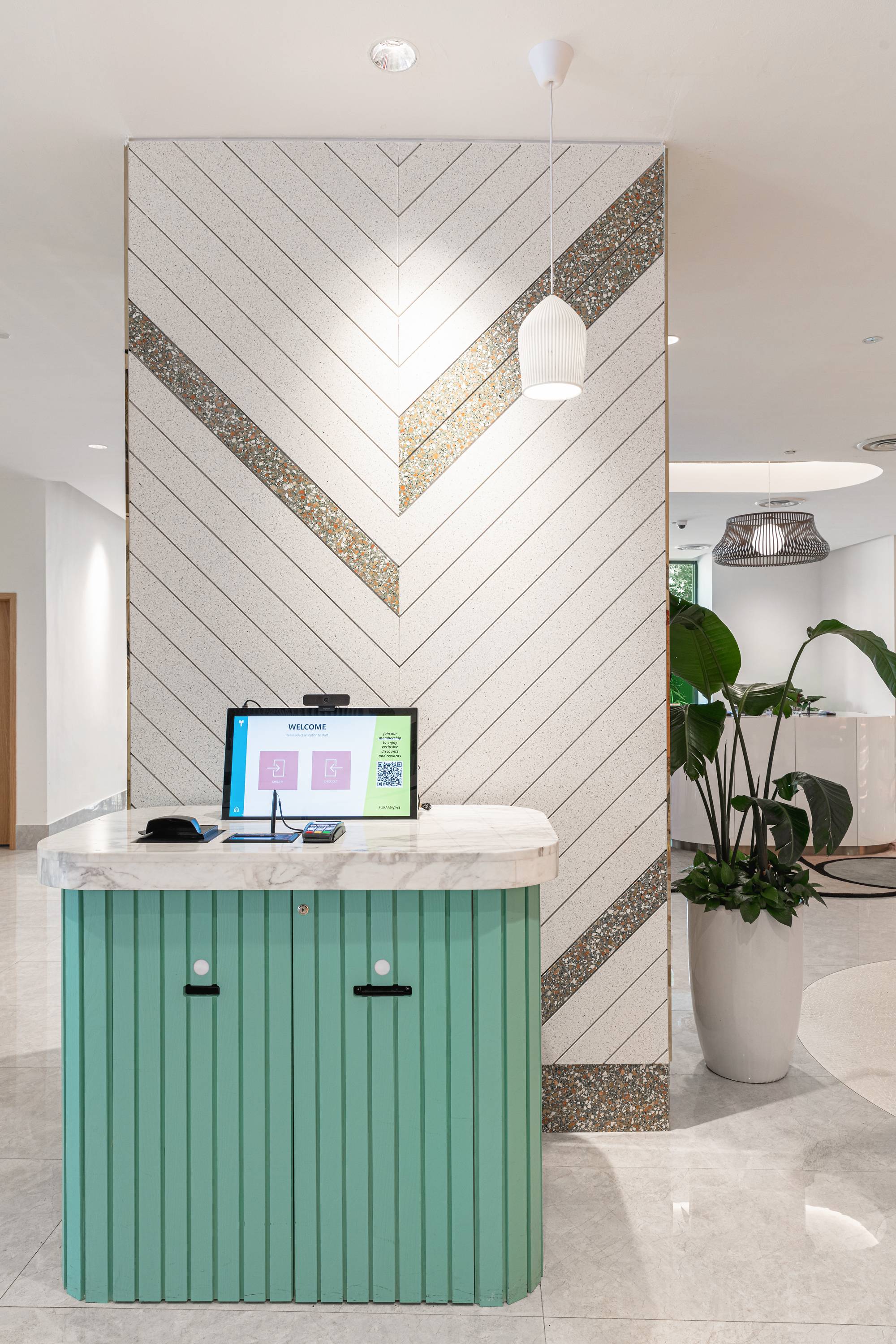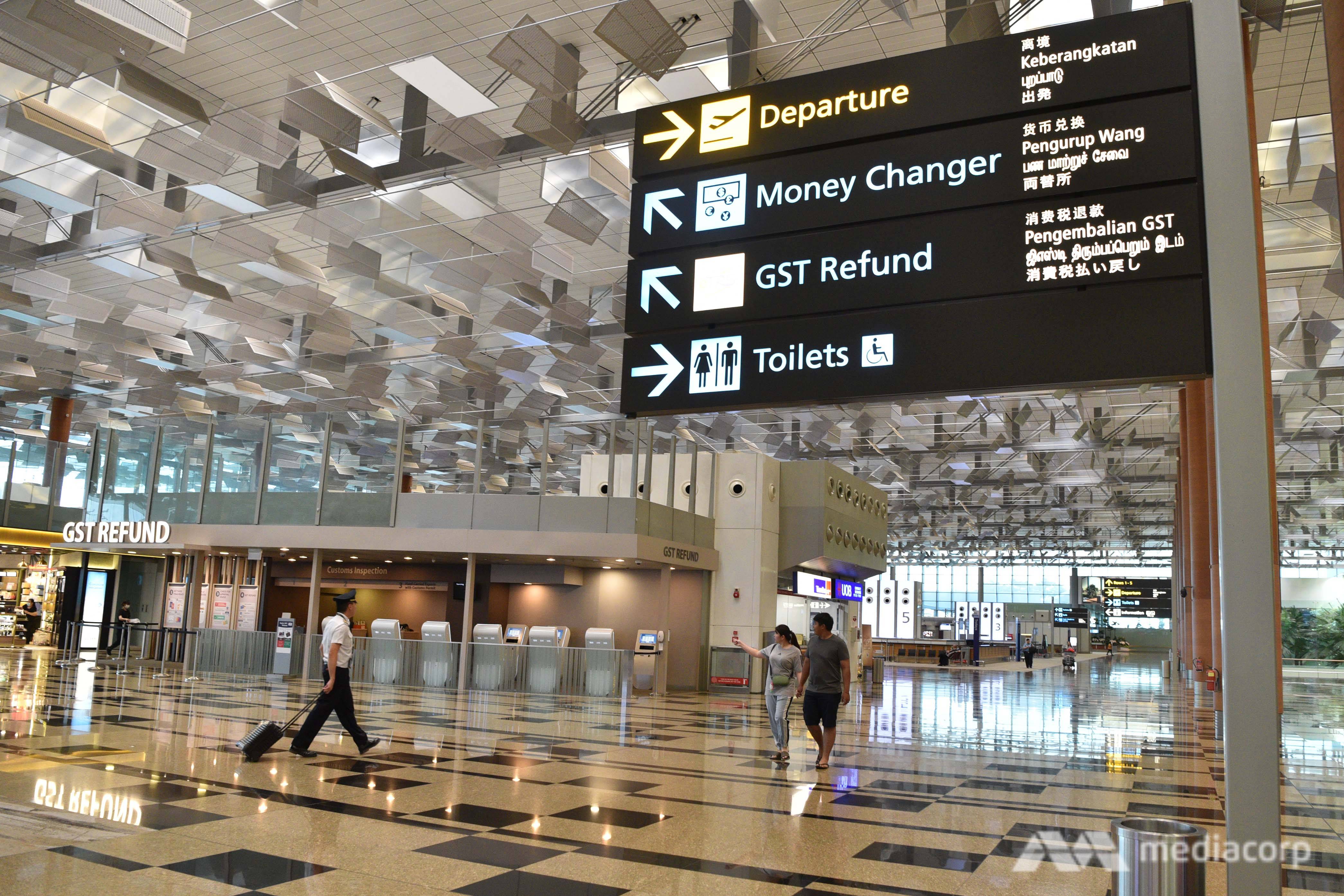SINGAPORE: Imagine this – while sipping your welcome cocktail at a hotel lobby, you get surgical masks, gloves and hand sanitisers along with your room key. At breakfast, there are no buffets and you order a meal electronically. Want to head to the pool or the gym? Book first and wait for your turn so it doesn’t get too crowded.
These are some of the scenarios that await travellers in what could be the “new normal” of travel.
When travelling becomes feasible again after COVID-19 dies down, the experience is unlikely to be the same. The global tourism industry, which has been one of the worst-hit by the coronavirus pandemic, will go through a fundamental shift, said experts.
“The industry will never be the same again: The industry will have to adapt and respond to the new normal and people working in this industry will likewise will have to adapt and change,” said Mr Michael Chiam, senior lecturer in tourism at Ngee Ann Polytechnic.
COVID-19: Phase 2 of post-circuit breaker reopening could begin before end-June, says Lawrence Wong
Operators of hotels and attractions in Singapore see a few emerging trends – hygiene would be top of the mind for travellers; an aversion to crowds means a change in how many leisure activities will be conducted; and technology will play a significant part in this transformation.
Marina Bay Sands employee using a misting machine to clean and disinfect the room and hard-to-reach places. (Photo: Marina Bay Sands)
Marina Bay Sands (MBS) – one of the popular destinations for travellers to Singapore – told CNA that the guest experience when it reopens will be “quite different”.
“Since the COVID-19 pandemic began, we have explored ways to boost our business resiliency and enhance public health,” said a spokesperson.
“Some 40 task forces have been set up during this period to explore how to improve operations in the post-COVID world, from reimagining our processes and venue set-ups to designing masks and goggles that seek to protect both staff and guests.”
It is not the only hospitality business that is rethinking its processes.
DISINFECT, SANITISE, STERILISE
Hotels CNA spoke to said that hygiene and sanitation will be stepped up, and items like masks, hand sanitisers and disinfecting wipes will become part of the amenity kits given to guests upon check-in.
Besides telling new guests the room Wi-Fi password, hygiene protocols and safe distancing rules will be part of the briefing moving forward.
Hotel key cards being sanitised. (Photo: Marina Bay Sands)
Hotels such as MBS and Marriot International said that key cards will be sanitised before they are reused, and hospital-grade disinfectants will be used for cleaning.
“We see safety and hygiene as ‘the new amenity’ when booking hotels, and we are taking this very seriously,” said Mr Rajeev Menon, president of Asia Pacific (excluding Greater China) at Marriott International.
For Banyan Tree, a SafeSanctuary programme is being rolled out from June to all its properties. This includes a reboot of protocols in more than 40 areas, from protective gear to sanitisation and disinfecting protocols, as well as safe distancing.
There will be hourly cleaning of high-touch areas around its resorts, and bed linen will be steamed when they are changed. The role of their hygiene managers will be expanded to implement and reinforce these new measures.
Ms Kwee Wei-Lin, president of the Singapore Hotel’s Association, agreed that rapid technology adoption will take place to minimise physical contact and raise hygiene standards.
“Hotels will start to introduce electrostatic sprays to deep-sanitise surfaces, for example in hotel rooms as well as public areas, as well as the use of ultraviolet light technology for sanitising guestroom keys and devices shared by employees,” said Ms Kwee.
Furama Singapore and other hotels are also looking into robot cleaners for their properties. Far East Hospitality, which runs 24 hotels and serviced residences in Singapore, said it will use robots to increase the frequency of cleaning in lobbies and lounges.
“Other technology adoptions include thermal scanners and contact-tracing bracelets. There will also be an increase in adoption of contactless technology such as check-ins and check-outs via mobile devices,” said Mr Arthur Kiong, CEO of Far East Hospitality.
An autonomous mobile robot that disinfects surfaces with ultraviolet light, known as Sunburst UV Bot, is deployed at Northpoint City shopping mall amid the coronavirus disease (COVID-19) outbreak in Singapore May 20, 2020. REUTERS/Edgar Su
This focus on cleanliness is not just for the tourism industry – the Singapore Government had launched the SG Clean campaign in February, to rally businesses and members of the public to do their part.
Said the Singapore Tourism Board (STB): “These measures must be in place to give consumers the confidence and assurance to visit Singapore when travel restrictions are gradually lifted.”
“Health and safety will become the top priority of travellers, at least in the short- and mid-term,” said Dr Wong Kin Yin, lecturer at the Nanyang Business School.
He added that digital and automated technologies will be more widely deployed to reduce human-to-human contact. “Singapore, with its Smart Nation initiative, could take this as an opportunity for the travel industry to undergo digital transformation,” he said.
ZOOM-BA?
In this age of social distancing, fitness classes, cooking sessions and other activities may be conducted privately in your hotel room, or on video-conferencing platforms such as Zoom. Alternatively, access to common facilities will be capped to avoid overcrowding.
For example, MBS will be limiting capacity at its Infinity Pool and staggering check-in and check-out timings to prevent crowds gathering, it said.
Instead of a “personal touch”, guests will be getting touch screens and hotel staff will have to get used to imposing some of these new rules to keep people apart as a safety measure against COVID-19.

A self check-in kiosk installed at Furama Singapore hotel. (Photo: Furama Singapore)
Self-check-in kiosks at airports and hotels, contactless payment and virtual tours of attractions will become more prevalent, said Dr Wong.
Check-in forms, restaurant menus and attraction tickets can all be digitalised. When dining, for example, guests may call up the menu on their own devices by scanning a QR code, said Banyan Tree. MBS is looking at smart control of lights and appliances in its rooms, it said.
Furama Singapore said it intends to start an unmanned retail stop at hotel lobbies to reduce the interaction between staff members and guests. This is on top of measures such as QR-code ordering, online payments and other tech solutions to clean their hotels.
Said Ngee Ann Poly’s Mr Chiam: “The industry must be ready to embrace new digital solutions. The big question is how to incorporate the human touch into technology.”
STAYCATIONS, BUSINESS TRAVEL
The tourist demand for hotels in Singapore remains at zero for now, but experts said business travel and domestic tourism will be the first to pick up as virus outbreak gets under control.
Last week, authorities said that Singapore is in talks with various countries to implement “green lanes” for essential travel, catering to businesses that require their employees to make trips.
READ: Business and official travellers on Singapore-China ‘fast lane’ arrangement must get COVID-19 swab tests
Singapore’s first “fast lane” travel arrangement is with China. Approved travellers have to take swab tests before departure and upon arrival. They also must adhere to a controlled itinerary that is supervised by the host company or government agency for the first 14 days,
Travellers are required to use contact tracing mobile app TraceTogether for the duration of their stay, while Singapore residents travelling into China will have to use the country’s local Health QR code during their stay.
READ: Singapore to gradually reopen borders, plans to resume essential travel among countries with low COVID-19 transmission rate
“Such arrangements could become the new norm in international travel amidst the ongoing COVID-19 situation,” the Ministry of Trade and Industry had said.
“We could start on a limited scale, focusing on transit passengers and essential business travel that support our global supply chains, and scale up to include more groups of travellers when the situation allows for it.”

Changi Airport Terminal 3 has seen fewer visitors amid the COVID-19 outbreak. (Photo: Jeremy Long)
Mr Chew Kian Beng, an expert in hospitality and tourism management from Temasek Polytechnic, said that business travellers in this first wave of travel could present an opportunity for Singapore.
“With social distancing and additional hygiene measures, travellers will need to pay a premium for tourism services, which can be absorbed as company expense. Also, business travellers would not quibble over flying in earlier to observe the quarantine period before their event,” he said.
“Being renowned as a clean city, Singapore would be in a good position to market hygiene-certified tourism services and long-stay lodging packages.”
READ: Travellers allowed to transit through Changi Airport from Jun 2
For leisure travellers, Dr Wong of NTU recommended that Singapore promote its eco-tourism and wellness offerings, to alleviate possible negative impressions of the country being a densely populated city with a high number of COVID-19 cases.
“We may want to focus more on the ‘garden’ instead of ‘city’ aspect based on our City in a Garden positioning,” he said.
PREPARING FOR DOMESTIC TOURISM
While STB initially anticipated a 25 to 30 per cent decline in international arrivals this year, in the first three months of 2020, the drop in arrivals was much higher at 43 per cent.
“With travel restrictions remaining in place in Singapore and around the world, we expect the visitor arrivals to decline further,” said STB chief executive Keith Tan.
STB told CNA that when there are signs of improvement, the agency will encourage Singaporeans to support the local tourism industry, which employed around 65,000 workers in 2019.
Jewel Changi Airport, where F&B business have been affected by the COVID-19 crisis. (Photo: Raj Nadarajan/TODAY)
Singapore attractions are preparing for this. Jewel at Changi Airport said that it will focus its marketing efforts on Singapore residents, given travel restrictions on foreign visitors.
“For Phase 2 and Phase 3, we hope that more businesses such as F&B dine-in and retail outlets can be opened,” a spokesperson said.
READ: Going the extra mile to keep Gardens by the Bay neat and tidy during the COVID-19 circuit breaker
READ: More time with the fish: Behind the scenes at the SEA Aquarium during the circuit breaker
Garden by the Bay is exploring the development of an app for visitors to buy time-stamped tickets to indoor attractions and get real-time updates on crowds at the gardens.
While it has stepped up cleaning of common areas and reduced the capacity of enclosed attractions like the Cloud Forest and Flower Dome, it is further reviewing safety protocols ahead of its reopening.
Irene and Grace pruning against a backdrop of the Marina Bay Sands. (Photo: Jeremy Long)
“There is a role for a national garden to play regardless of whether it is a typical day or a pandemic period. At Gardens by the Bay, we have always believed in the power of nature and that there is respite to be sought in flora and fauna,” said a spokesperson, adding that there are still about 5,000 Singapore residents exercising daily at the outdoor gardens.
BOOKMARK THIS: Our comprehensive coverage of the coronavirus outbreak and its developments
Download our app or subscribe to our Telegram channel for the latest updates on the coronavirus outbreak: https://cna.asia/telegram




